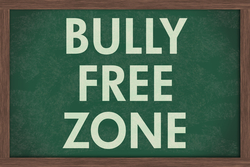Minnesota’s Proposed Anti-Trademark Bullying Statute Misses the Mark (Guest Blog Post)
By Guest Blogger Leah Chan Grinvald
 Last April, Minnesota became the first state in the U.S. to introduce anti-trademark bullying legislation with the proposal of H.F. 2996. The proposed “Small Business Trademark Protection Act” had a whole host of problems, in particular a mandatory alternative dispute resolution mechanism if one party opted to request it, as discussed by Steve Baird over at DuetsBlog. Perhaps this explains why the bill went nowhere after its introduction, and why Representative Peppin’s recently proposed HF 1116 does not include this dispute resolution mechanism.
Last April, Minnesota became the first state in the U.S. to introduce anti-trademark bullying legislation with the proposal of H.F. 2996. The proposed “Small Business Trademark Protection Act” had a whole host of problems, in particular a mandatory alternative dispute resolution mechanism if one party opted to request it, as discussed by Steve Baird over at DuetsBlog. Perhaps this explains why the bill went nowhere after its introduction, and why Representative Peppin’s recently proposed HF 1116 does not include this dispute resolution mechanism.
Although I applaud Minnesota’s attempts at addressing the very serious issue of trademark bullying, and I am generally in agreement that we need some sort of statutory answer to trademark bullying, neither versions of the proposed laws quite hit the mark. The current version provides a fee-shifting provision:
The court in exceptional cases may also award reasonable attorney fees to the prevailing party. Exceptional cases include cases where a party brings suit for harassment, malicious, fraudulent, or willful purposes, including trademark bullying.
The proposed law also defines “trademark bullying” for the purposes of this fee-shifting provision: “the practice of a trademark holder using litigation tactics in an attempt to enforce trademark rights beyond a reasonable interpretation of the scope of the rights granted to the trademark holder.”
While I am all for educating the public about what is and what is not trademark bullying, I don’t think that the term “trademark bullying” is actually needed in this fee-shifting provision. I think that fee-shifting is generally a good idea overall, and I worry that labeling the activity with the controversial term will produce another stalemate on the legislation. I’m also not particularly a fan of the proposed definition in part because “litigation tactics” seems so unclear (and in the interests of full disclosure I have proposed my own definition of trademark bullying). In addition, the use of the term “prevailing party” probably duplicates the problems with obtaining attorney’s fees under Section 34(a) of the Lanham Act, especially in cases where the trademark bully decides to voluntarily dismiss the case – with or without prejudice.
But more importantly, the scaled-back version of this anti-trademark bullying law doesn’t reach the true problem of trademark bullying: the lack of access to cheap (or free) legal resources that small businesses and individuals who are victims of trademark bullying need. I have argued elsewhere that victims of trademark bullying need a “groundless threats” cause of action so that they could perhaps find attorneys willing to help on a contingency fee basis. In addition, I support instituting a small claims IP court where these types of cases could be heard quickly and cheaply.
Overall, bravo to Representative Peppin and Minnesota for continuing the fight against trademark bullies, but I am doubtful that this new version will go anywhere, especially as Steve Baird reported on DuetsBlog that no hearings on the bill will be scheduled until next year.
[Photo Credit: A chalkboard with the chalk letters bully free zone // ShutterStock]
